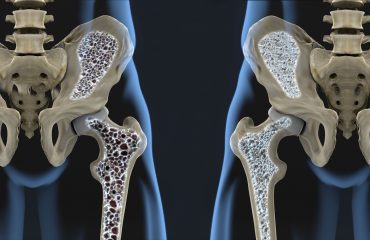Cognitive decline and dementia are two dreaded conditions associated with older age. While the conditions are not particularly well-understood, new studies have shown that controlling high blood pressure can help lower the incidence of dementia and cognitive impairment. Read more to understand how you can lower your risk for dementia and cognitive impairment.
What is high blood pressure?
High blood pressure, also known as hypertension, is when the force of the blood running through the body’s vessels is too high. This high pressure increases the tension on the walls of the vessels.
There are two numbers that makeup blood pressure: the top number and the bottom number. The top number is the systolic blood pressure and the bottom number is the diastolic blood pressure. The systolic number is a measurement of the blood pressure in the vessels when the heart contracts and squeezes blood through its valves. This is when the heart is providing blood to all of the vessels and organs throughout the body. The diastolic number is the pressure of the vessels when the heart relaxes and fills with more blood, filling up for the next squeeze. Both numbers are important. Elevation of either could be a sign of high blood pressure. The relevant numbers are shown in the table below.
| Category | Systolic Blood Pressure | Diastolic Blood Pressure |
| Normal | <120 | <80 |
| Elevated | 120-129 | <80 |
| Stage 1 Hypertension | 130-139 | 80-89 |
| Stage 2 Hypertension | >140 | >90 |
What is dementia and cognitive decline?
Cognitive impairment and dementia are similar but slightly different. Mild cognitive impairment is when a person has low performance in one or more cognitive areas. Mild dementia, however, is characterized by low performance in more than one cognitive domain. The main difference between the two is how well patients are able to perform in their daily lives. Cognitive impairment does not significantly interfere with daily activities. It may make certain tasks, like paying the bills, take longer, but generally, people are able to accomplish these necessary tasks. Dementia, in contrast, does significantly interfere with everyday activities that involve executive function, such as work. People with dementia are unable to perform these tasks without assistance.
What is the link between hypertension and cognitive impairment?
One group of researchers conducted a meta-analysis of 12 trials. In total, these trials examined 92,135 participants. They were studying the link between lowering blood pressure through medication compared to patients whose high blood pressure was untreated. They found that lowering blood pressure with medication reduced the incidence of dementia by 0.5%, from 7.5% to 7.0%. While this may seem like a very small difference, it was statistically significant. Considering the size of the aging population, 0.5% is the difference of hundreds of thousands of patients developing dementia and cognitive impairment or not.
While this study did examine the causes of dementia and cognitive decline, vascular health has long been thought to be involved. Over time, high blood pressure can cause damage to different vessels, resulting in decreased or dysfunctional oxygen flow. This gradual organ damage can also happen in the brain. Scientists believe that this plays a role in some types of dementia and cognitive decline. The results of this study support this conclusion.
How do you treat hypertension?
Fortunately, there are many ways to treat hypertension. While this study examined medications only, doctors will first typically recommend lifestyle alterations, such as diet and exercise. The recommended diet and exercise to lower high blood pressure is 150 minutes of moderate-intensity exercise a week and the DASH diet. The DASH diet is a low sodium diet, ideally less than 1500mg of sodium a day in the average adult. Common high-sodium foods to avoid include restaurant food, pre-packaged soups, condiments, canned goods, and tomato sauces.
This study focused on medical therapy. There are many different medications that patients can take. The main classes of medications include Angiotensin Converting Enzyme (ACE) Inhibitors, Beta Blockers, diuretics, calcium channel blockers, Angiotensin II Receptor blockers, and different alpha and beta-blockers. Each class is slightly different from the other and may be beneficial in different patient populations. Some doctors may even prescribe medications in combination, depending on the case. Most medications have a very low side effect profile if any.
Conclusion
The meta-analysis described above demonstrated that controlling high blood pressure reduced the incidence of cognitive impairment and dementia by 0.5%. This statistically significant reduction could save hundreds of thousands of people in North America from suffering from these devastating conditions. If you would like to learn more about ways that you can guard yourself against these conditions, contact us at the Anti-Aging and Wellness Clinic today.








